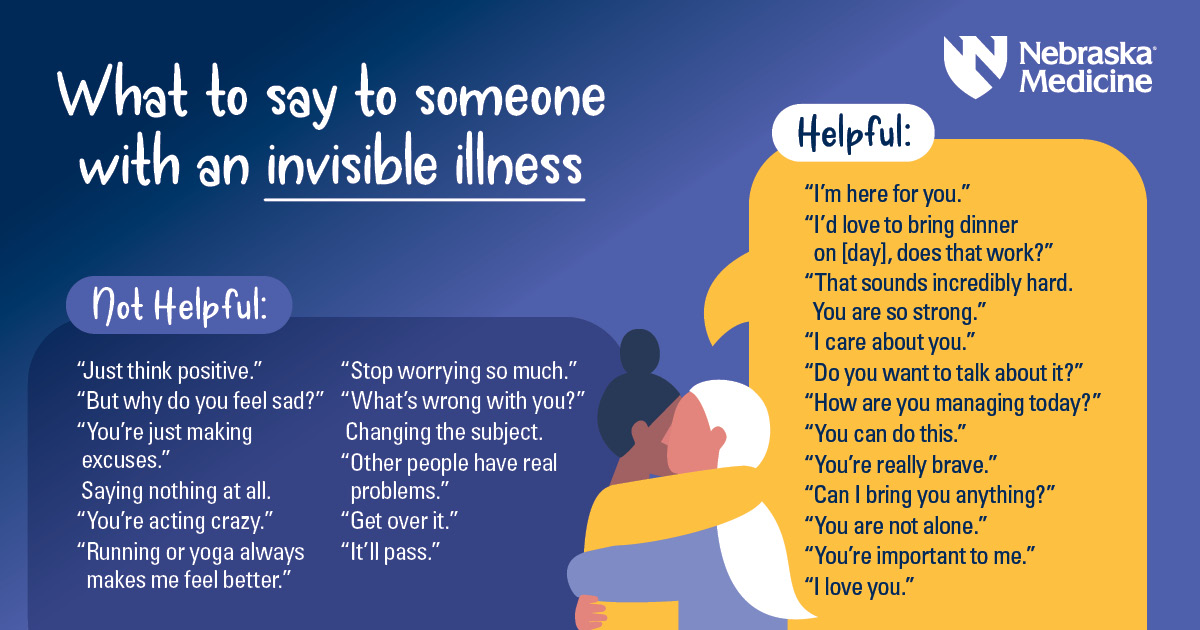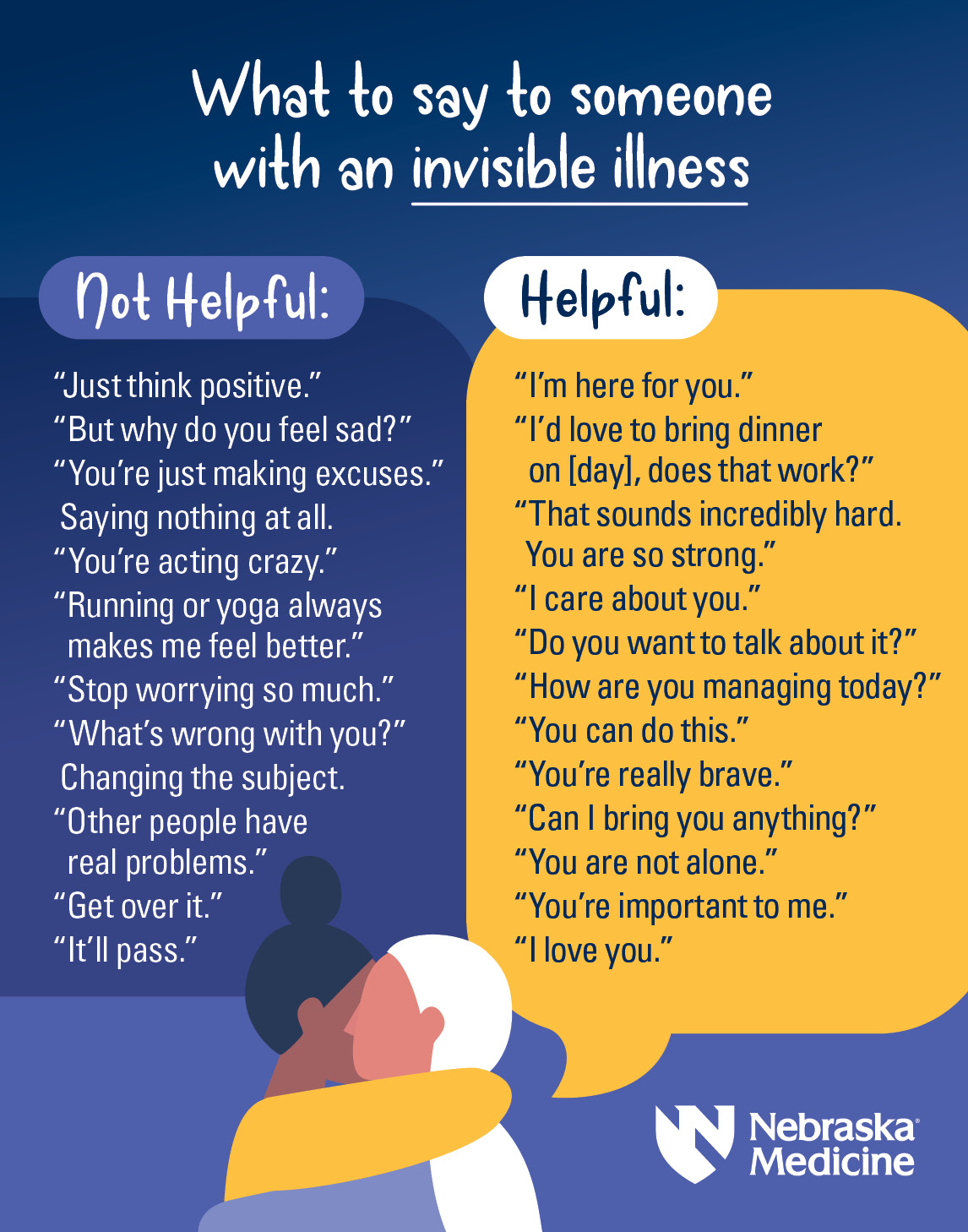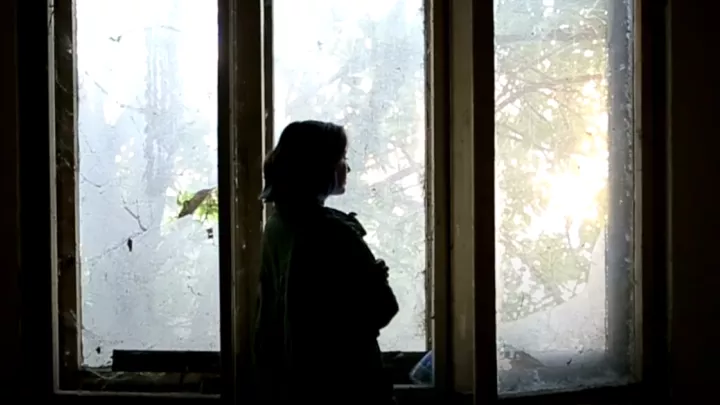How to talk to a depressed person (Plus what not to say)

Because a broken arm doesn’t carry the stigma that a mental disorder often does, people often avoid treatment or even talking about their illness with others. But these invisible illnesses deserve compassion and validation. Find out how to see if someone is struggling and what you can do to help.
Signs someone is struggling
Mental health issues aren’t always obvious. Here are some signs someone may be struggling:
- Eating more or less than they used to
- Sleeping a lot more than usual
- Pressured speech / difficulty talking
- Hypersensitive to noises
- "Snapping" at something small or increased irritability
- Extremely quiet or reserved
- Unfocused, distracted or “zoned out”
- Dizziness or shaking
- Upset stomach
- Pulling away from others
If you do see a change in someone you know, be kind. Each mental illness has its own symptoms. Don’t demand to know their health condition or make assumptions. Just offer your help and nonjudgmental listening.
If you or someone you know needs help now, you should immediately call the National Suicide Prevention Lifeline at 988 or call 911.
How to support your loved one
With the stigma surrounding mental health, it takes courage to talk about an invisible illness. If a loved one confides in you about their struggle, your response can be helpful or discouraging. "One of the most important things you can do is just listen," says psychiatrist Rebecca Wysoske, MD. "Rather than attempting to fix the problem or give advice, simply try to listen with empathy."
Just like a physical illness, a mental illness can benefit from medication or treatments like therapy. Sometimes a relapse can be a result of not taking a medication regularly. A psychiatrist or therapist can offer professional help personalized to the patient's needs. "If they seem to have really low moods that don't get better, lasting a couple of weeks, that's a sign to get help," says Dr. Wysoske.
There are a lot of ups and downs with an invisible illness. Sometimes the illness becomes severe, and immediate care is necessary. Currently, one in eight visits to a U.S. emergency room involves a patient with a psychiatric or substance abuse problem. Our 24/7 psychiatric emergency center is a calm, supportive environment for anyone in crisis.






